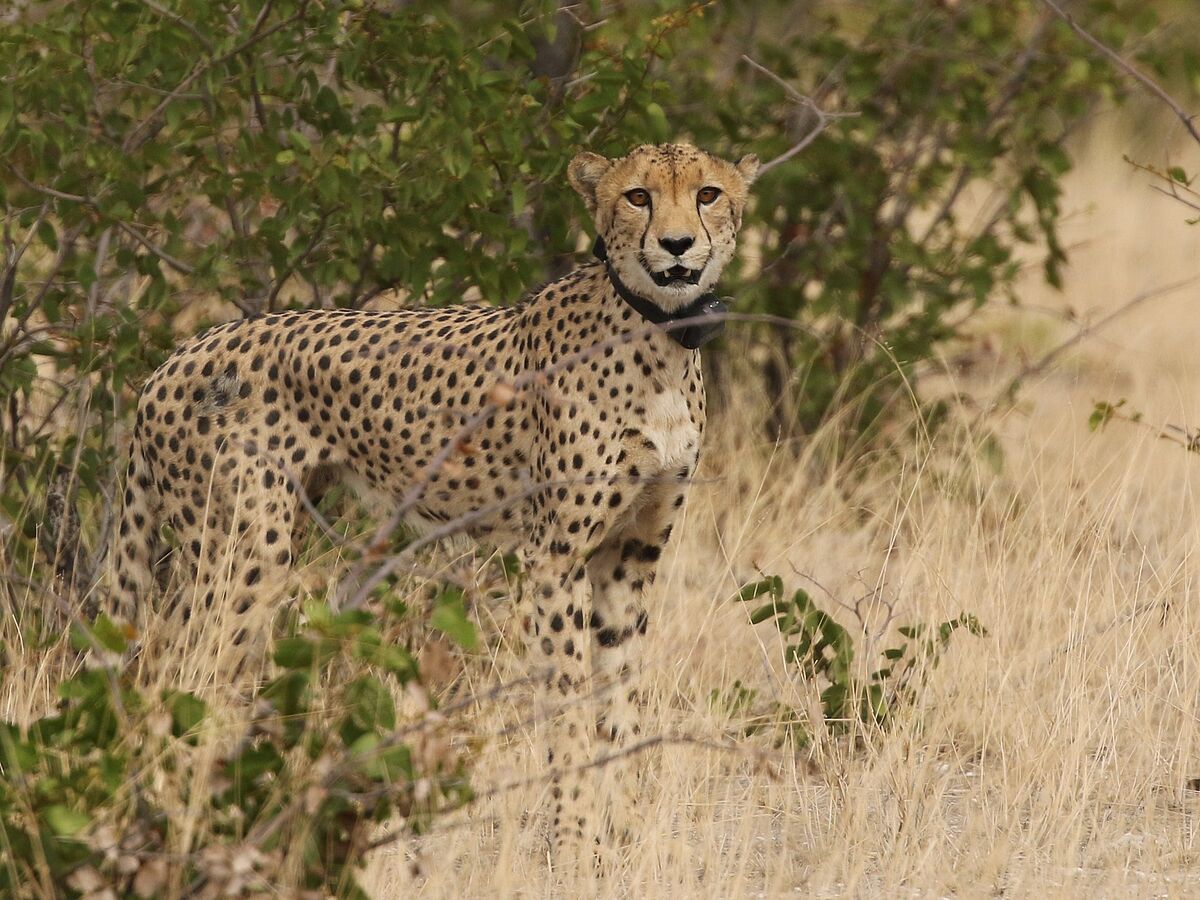A comprehensive assessment of cheetah populations in southern Africa reveals the critical state of one of the planet’s most iconic big cats. An international group of scientists presents evidence that realistic population estimates of cheetah in southern Africa are lower than previously recognised and that their population decline support a call to list the cheetah as “Endangered” on the International Union for Conservation of Nature (IUCN) Red List. The study is published in the open-access journal PeerJ.
An international team of 17 researchers, including scientists from the German Leibniz Institute for Zoo and Wildlife Research (IZW), mapped more than 2 million locations from collared cheetahs and verified another 20,000 cheetah observations from the research community and the public. Their findings demonstrate that free-ranging cheetahs were present in 789,700 square kilometers, approximately one and a half times the size of France, in one large, continuous area spanning Namibia, Botswana, South Africa and Zimbabwe between 2010 and 2016.
“This joint effort of various long term projects gives an alarming insight into the state of cheetah populations in southern Africa and underlines the importance to increase the protection for this species“, says Bettina Wachter, scientist at the Leibniz-IZW.
“The study estimates that only 3,577 adult cheetahs exist in this large area and the majority (55 percent) of them is found within only two habitats. This estimate is 19 percent lower than the current assessment of the IUCN, supporting the call for the upgrading of cheetahs from ‘Vulnerable’ to ‘Endangered’,” says lead author Florian Weise, scientist at the Community Living Among Wildlife Sustainability Conservancy (CLAWS), USA.
The researchers used crowed-sourced cheetah photographs and videos taken by tourists in an innovative and cost-effective approach, especially in well-visited protected areas.
The study also confirmed that the status of cheetahs on privately owned land is a pressing conservation issue, since only 18 percent of the cheetah range is within internationally recognized protected areas. Nearly 50 percent of the surveyed farmers considered cheetahs as a source of conflict and nearly 30 percent actively persecuted (e.g., by killing or trapping) the species. Population models showed that this persecution is responsible for serious population declines.
In Namibia, much of the cheetah distribution overlaps with areas of livestock and game production. “Luckily, in Namibia the cooperation between researchers and the Ministry of Environment and Tourism and other stakeholders is excellent, providing a fruitful area for conservation research”, states Jörg Melzheimer from the IZW.
The result of this study strongly supports the recent call, led by the “Range Wide Conservation Program for Cheetah and African Wild Dogs’” team at the Zoological Society of London, for the IUCN to upgrade the cheetah from Vulnerable to Endangered. This step would serve to create awareness about the cheetah’s precarious situation and open more avenues to protect this elusive species.
The study is supported, among others, by the National Geographic Society’s Big Cats Initiative, USA, and the Messerli Foundation, Switzerland.
Publication
Weise FJ, Vijay V, Jacobson AP, Schoonover RF, Groom RJ, Horgan J, Keeping D, Klein R, Marnewick K, Maude G, Melzheimer J, Mills G, van der Merwe V, van der Meer E, van Vuuren RJ, Wachter B, Pimm SL (2017): The distribution and numbers of cheetah (Acinonyx jubatus) in southern Africa. PeerJ 5:e4096; DOI 10.7717/peerj.4096.
https://peerj.com/articles/4096.pdf
Contact:
| Leibniz Institute for Zoo and Wildlife Research (IZW) of the Forschungsverbund Berlin e.V. Alfred-Kowalke-Straße 17 10315 Berlin, GERMANY P.O.Box 70 04 30, 10324 Berlin http://www.leibniz-izw.de Jörg Melzheimer melzheimerizw-berlin.de +49 30 51 68 462 Bettina Wachter wachterizw-berlin.de +49 30 51 68 518 Steven Seet seetizw-berlin.de +49 30 51 68 125 |


